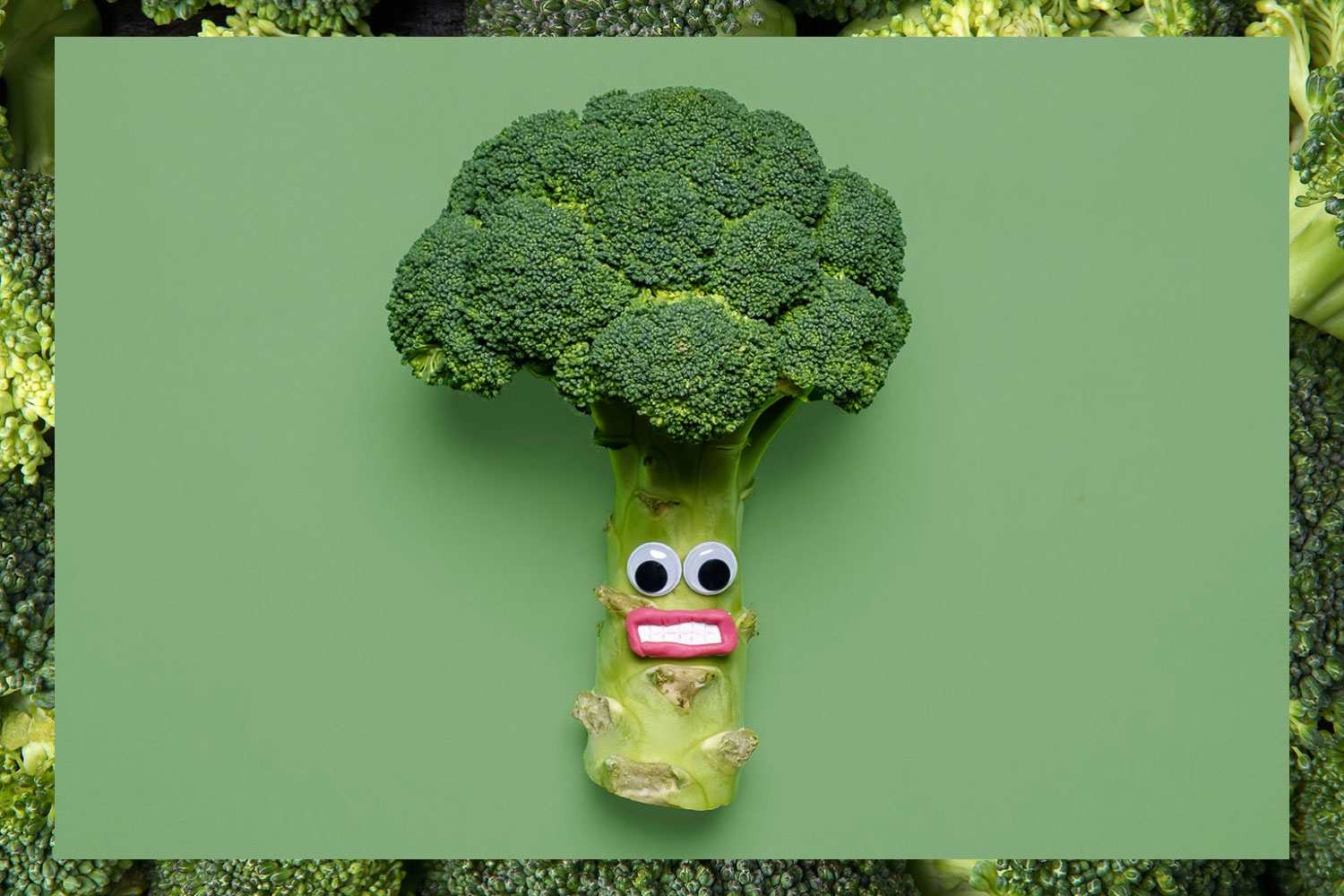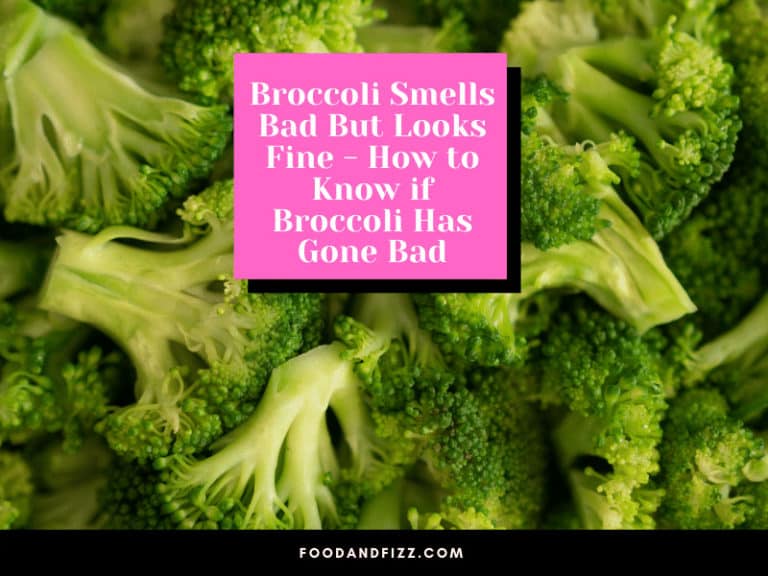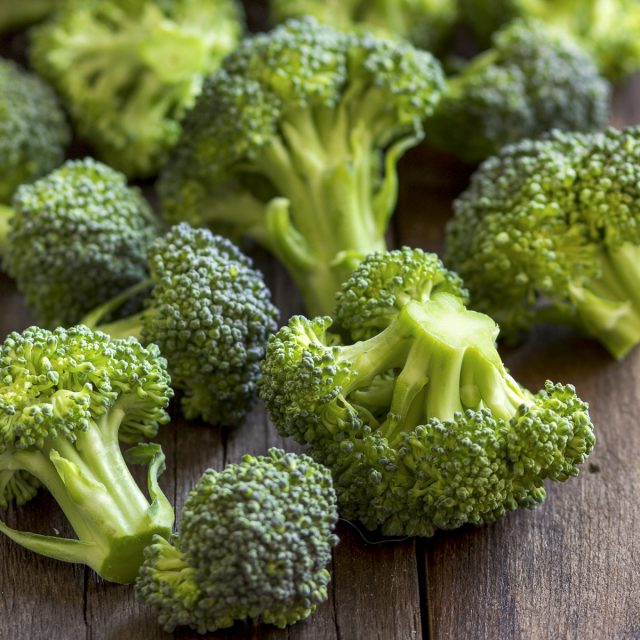Broccoli(Brassica oleracea) is a cruciferous vegetable that is often associated with a strong, pungent smell. This smell is caused by the presence of sulfur compounds, which are also responsible for the characteristic odor of other cruciferous vegetables such as cauliflower, cabbage, and Brussels sprouts.
The smell of broccoli is often described as being unpleasant or even offensive. However, some people find the smell to be appealing. In fact, there is some evidence to suggest that the smell of broccoli may have health benefits. For example, one study found that people who regularly ate broccoli had a reduced risk of developing certain types of cancer.
Whether you find the smell of broccoli to be pleasant or unpleasant, there is no doubt that it is a unique and distinctive vegetable. Broccoli is a good source of vitamins, minerals, and fiber, and it can be enjoyed in a variety of ways. So next time you're at the grocery store, don't be afraid to give broccoli a try. You may just be surprised at how much you enjoy it.
Broccoli Smells Bad
Broccoli is a cruciferous vegetable that is known for its strong, pungent smell. This smell is caused by the presence of sulfur compounds, which are also responsible for the characteristic odor of other cruciferous vegetables such as cauliflower, cabbage, and Brussels sprouts.
- Unpleasant Odor: The smell of broccoli is often described as being unpleasant or even offensive.
- Health Benefits: Despite its unpleasant smell, broccoli is athat has been linked to a reduced risk of certain types of cancer.
- Sulfur Compounds: The smell of broccoli is caused by the presence of sulfur compounds, which are also found in other cruciferous vegetables.
- Cooking Methods: The smell of broccoli can be reduced by cooking it in certain ways, such as steaming or roasting.
- Personal Preferences: Some people find the smell of broccoli to be appealing, while others find it to be unpleasant.
- Cultural Differences: The perception of the smell of broccoli can vary depending on cultural background.
The smell of broccoli is a complex and multifaceted phenomenon. It is influenced by a variety of factors, including the type of broccoli, the cooking method, and the individual's personal preferences. Despite its sometimes unpleasant smell, broccoli is a healthy and nutritious vegetable that can be enjoyed in a variety of ways.
Unpleasant Odor
The unpleasant odor of broccoli is a common complaint. This odor is caused by the presence of sulfur compounds, which are also responsible for the characteristic smell of other cruciferous vegetables such as cauliflower, cabbage, and Brussels sprouts. The strength of the odor can vary depending on the type of broccoli, the cooking method, and the individual's personal preferences.
- Subjective Experience: The perception of the smell of broccoli as unpleasant is subjective and can vary from person to person.
- Cultural Differences: The perception of the smell of broccoli can also vary depending on cultural background. In some cultures, the smell of broccoli is considered to be more acceptable than in others.
- Cooking Methods: The smell of broccoli can be reduced by cooking it in certain ways, such as steaming or roasting.
- Health Benefits: Despite its unpleasant smell, broccoli is a healthy and nutritious vegetable that has been linked to a reduced risk of certain types of cancer.
The unpleasant odor of broccoli is a complex and multifaceted phenomenon. It is influenced by a variety of factors, including the type of broccoli, the cooking method, the individual's personal preferences, and cultural background. Despite its sometimes unpleasant smell, broccoli is a healthy and nutritious vegetable that can be enjoyed in a variety of ways.
Health Benefits
Broccoli is a cruciferous vegetable that is known for its strong, pungent smell. This smell is caused by the presence of sulfur compounds, which are also responsible for the characteristic odor of other cruciferous vegetables such as cauliflower, cabbage, and Brussels sprouts. Despite its unpleasant smell, broccoli is athat has been linked to a reduced risk of certain types of cancer.
One study, published in the journal Cancer Research, found that people who ate broccoli regularly had a reduced risk of developing lung cancer. The study participants who ate the most broccoli had a 40% lower risk of developing lung cancer than those who ate the least broccoli. Another study, published in the journal JAMA Internal Medicine, found that people who ate broccoli regularly had a reduced risk of developing colorectal cancer. The study participants who ate the most broccoli had a 25% lower risk of developing colorectal cancer than those who ate the least broccoli.
The health benefits of broccoli are thought to be due to the presence of sulforaphane, a compound that has been shown to have anti-cancer properties. Sulforaphane has been shown to inhibit the growth of cancer cells and to promote the death of cancer cells. It has also been shown to reduce inflammation, which is a risk factor for cancer development.
The health benefits of broccoli are significant, and they outweigh the unpleasant smell of the vegetable. Broccoli is a healthy and nutritious vegetable that can be enjoyed in a variety of ways. It can be eaten raw, cooked, or juiced. Broccoli can also be added to soups, stews, and casseroles.
Sulfur Compounds
The strong, pungent smell of broccoli is caused by the presence of sulfur compounds. These same compounds are also responsible for the characteristic odor of other cruciferous vegetables such as cauliflower, cabbage, and Brussels sprouts. The sulfur compounds in broccoli are released when the vegetable is cut or cooked. These compounds can be unpleasant to some people, but they are also responsible for broccoli's health benefits.
- Type of Sulfur Compounds: The sulfur compounds in broccoli are primarily isothiocyanates and sulforaphane. These compounds have been shown to have anti-cancer and anti-inflammatory properties.
- Cooking Methods: The cooking method can affect the release of sulfur compounds in broccoli. Steaming broccoli releases fewer sulfur compounds than boiling or microwaving.
- Health Benefits: The sulfur compounds in broccoli have been linked to a reduced risk of certain types of cancer, including lung cancer and colorectal cancer. These compounds have also been shown to reduce inflammation and improve heart health.
The sulfur compounds in broccoli are a complex and multifaceted group of compounds. These compounds are responsible for the characteristic smell of broccoli, but they also have a number of health benefits. By understanding the role of sulfur compounds in broccoli, we can better appreciate the health benefits of this vegetable.
Cooking Methods
The strong, pungent smell of broccoli is caused by the presence of sulfur compounds. These same compounds are also responsible for the characteristic odor of other cruciferous vegetables such as cauliflower, cabbage, and Brussels sprouts. The sulfur compounds in broccoli are released when the vegetable is cut or cooked. These compounds can be unpleasant to some people, but they are also responsible for broccoli's health benefits.
The cooking method can affect the release of sulfur compounds in broccoli. Steaming broccoli releases fewer sulfur compounds than boiling or microwaving. This is because steaming involves cooking the broccoli in a closed environment, which prevents the sulfur compounds from escaping. Roasting broccoli also releases fewer sulfur compounds than boiling or microwaving, but this is because the high heat of roasting causes the sulfur compounds to break down.
If you are sensitive to the smell of broccoli, you can reduce the smell by cooking it in certain ways. Steaming or roasting broccoli are two good options. You can also reduce the smell of broccoli by adding other ingredients to it, such as lemon juice, garlic, or ginger. These ingredients can help to mask the smell of the broccoli and make it more palatable.
It is important to note that cooking broccoli in certain ways can also reduce its nutritional value. For example, boiling broccoli can leach out some of the broccoli's vitamins and minerals. Steaming broccoli is a better option for preserving the broccoli's nutritional value.
Personal Preferences
The perception of the smell of broccoli as pleasant or unpleasant is subjective and can vary from person to person. This is due to a number of factors, including genetics, culture, and personal experiences.
- Genetics: Some people are more sensitive to the smell of broccoli than others. This is due to genetic variations in the olfactory receptors, which are the proteins that detect smells.
- Culture: The perception of the smell of broccoli can also be influenced by culture. In some cultures, the smell of broccoli is considered to be more acceptable than in others. This is likely due to differences in the way that broccoli is prepared and eaten in different cultures.
- Personal experiences: Personal experiences can also affect the way that a person perceives the smell of broccoli. For example, someone who has had a negative experience with broccoli, such as eating it when they were sick, may be more likely to find the smell of broccoli to be unpleasant.
It is important to note that there is no right or wrong answer when it comes to whether or not the smell of broccoli is pleasant or unpleasant. It is simply a matter of personal preference.
Cultural Differences
The perception of the smell of broccoli as pleasant or unpleasant can vary depending on cultural background. This is likely due to differences in the way that broccoli is prepared and eaten in different cultures.
For example, in some Asian cultures, broccoli is often stir-fried with garlic and ginger. This cooking method helps to reduce the smell of the broccoli and makes it more palatable to people who are sensitive to the smell. In contrast, in some Western cultures, broccoli is often boiled or microwaved, which can make the smell more intense.
Another factor that can influence the perception of the smell of broccoli is the way that it is eaten. In some cultures, broccoli is eaten as a side dish, while in other cultures it is eaten as a main course. This can also affect the way that people perceive the smell of the broccoli.
Understanding the cultural differences in the perception of the smell of broccoli can help us to be more tolerant of other people's preferences. It can also help us to better understand the role that culture plays in our own food preferences.
Frequently Asked Questions About Broccoli Smell
Broccoli(Brassica oleracea), a cruciferous vegetable, is known for its nutritional value, but its distinctive smell can be polarizing. Here are answers to some frequently asked questions about broccoli's odor:
Question 1: Why does broccoli smell bad?
Answer: The pungent smell of broccoli is caused by sulfur compounds released when the vegetable is cut or cooked. These compounds are also responsible for the characteristic odor of other cruciferous vegetables like cauliflower and cabbage.
Question 2: Is the smell of broccoli harmful?
Answer: No, the smell of broccoli is not harmful. In fact, the sulfur compounds that cause the smell have been linked to several health benefits, including reduced risk of certain cancers.
Question 3: How can I reduce the smell of broccoli when cooking?
Answer: Steaming or roasting broccoli releases fewer sulfur compounds than boiling or microwaving. Adding ingredients like lemon juice, garlic, or ginger to your broccoli dish can also help mask the smell.
Question 4: Why do some people find the smell of broccoli appealing while others find it unpleasant?
Answer: The perception of broccoli's smell as pleasant or unpleasant can vary based on factors like genetics, culture, and personal experiences.
Question 5: Can I still enjoy the health benefits of broccoli if I don't like its smell?
Answer: Yes, you can still enjoy the health benefits of broccoli even if you don't like its smell. You can try incorporating broccoli into dishes where the smell is less noticeable, such as soups, stews, or casseroles.
Question 6: Is there any way to eliminate the smell of broccoli completely?
Answer: It may not be possible to completely eliminate the smell of broccoli, but following the tips mentioned above can help reduce it significantly.
Remember that the smell of broccoli is a natural characteristic of this vegetable, and it should not be a deterrent to enjoying its nutritional benefits.
Transition to the next article section: Understanding the causes and potential health implications of broccoli's smell can empower you to make informed choices about incorporating this vegetable into your diet.
Tips for Dealing with the Smell of Broccoli
Broccoli, a cruciferous vegetable, is well-known for its nutritional value, but its distinctive smell can be off-putting to some. Here are five tips for dealing with the smell of broccoli:
Tip 1: Choose the Right Cooking Method
The cooking method can significantly impact the intensity of broccoli's smell. Steaming or roasting broccoli releases fewer sulfur compounds compared to boiling or microwaving. By choosing these cooking methods, you can reduce the pungency of the smell.
Tip 2: Add Flavorful Ingredients
Adding flavorful ingredients to your broccoli dish can help mask its smell. Consider adding aromatic ingredients like garlic, ginger, lemon juice, or herbs to your broccoli. These ingredients will enhance the flavor of the broccoli while reducing its unpleasant odor.
Tip 3: Ventilate Your Kitchen
Proper ventilation can help dissipate the smell of broccoli while cooking. Open windows or turn on your kitchen exhaust fan to allow the odors to escape. You can also place a bowl of white vinegar in the kitchen to absorb odors.
Tip 4: Cook Broccoli in Smaller Quantities
Cooking broccoli in smaller quantities can help reduce the overall intensity of the smell. Instead of cooking a large head of broccoli, divide it into smaller florets and cook them in batches.
Tip 5: Try Pre-Cut Broccoli
Pre-cut broccoli florets release less of the sulfur compounds responsible for the smell compared to whole broccoli heads. If you're sensitive to the smell, consider using pre-cut broccoli florets to minimize the odor.
Summary:
By following these tips, you can reduce the smell of broccoli while still enjoying its nutritional benefits. Remember that the smell of broccoli is a natural characteristic of this vegetable, and it should not deter you from incorporating it into your diet.
Transition:
Now that you have strategies for managing the smell, let's explore the nutritional value of broccoli and how it can contribute to a healthy lifestyle.
Conclusion
The distinctive smell of broccoli, often described as unpleasant, is primarily caused by sulfur compounds released during cutting or cooking. These compounds, however, contribute to broccoli's health benefits, including a potential reduction in cancer risk.
While personal preferences and cultural factors influence the perception of broccoli's smell, strategies exist to minimize the odor during cooking, such as steaming or roasting, adding flavorful ingredients, and ventilating the kitchen. Additionally, pre-cut broccoli can release fewer sulfur compounds compared to whole heads.
Despite its sometimes pungent aroma, broccoli remains a valuable addition to a healthy diet due to its nutritional content. By understanding the causes and potential health implications of broccoli's smell, we can make informed choices about incorporating this vegetable into our meals.
Facebook Minion
Van Lathan Age
Monster High Movies In Order To Watch

How to Tell If Broccoli Has Gone Bad, According to a Food Scientist

Broccoli Smells Bad But Looks Fine 3 Crucial Signs To Know

How to Tell if Broccoli is Bad? 4 Simple Checks Home Cook Basics
ncG1vNJzZmisn6jAb67LqJlnm5%2Bnsm%2FDyKebqK%2BjY7umwI6coKedp6iDcK7RqJqcp5yeerS5xKWjrGWSlrFvtNOmow%3D%3D